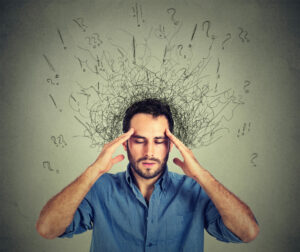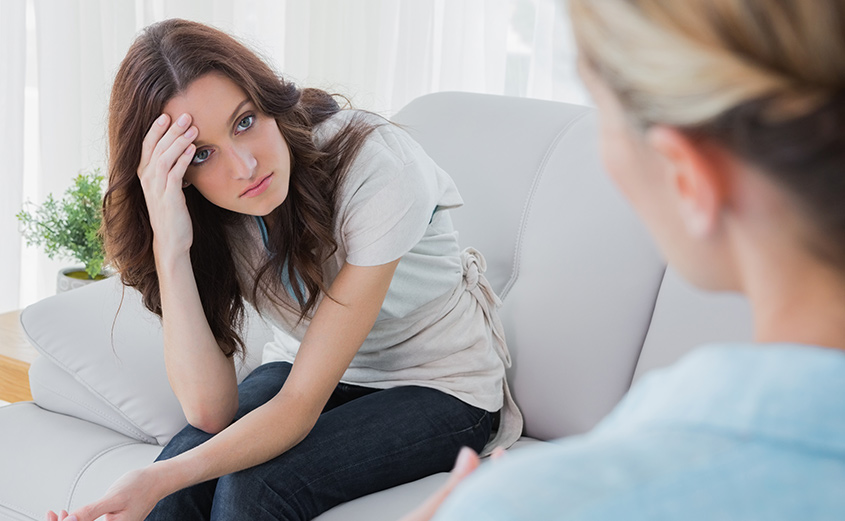Anxiety is a debilitating illness that can have a serious impact on your life. If you’re struggling with acute anxiety symptoms, it can be difficult to know which treatment method is right for you. In this article, we’ll explore all of the available treatment methods and help you find the one that’s best for you.
Contents
The Different Types of Anxiety

There are a few different types of anxiety, which can make it difficult to determine what treatment is best for you.
- Generalized Anxiety Disorder (GAD): This type of anxiety is characterized by persistent and intrusive thoughts, worries, and fears that disrupt everyday life. People with GAD often experience physical symptoms such as headaches, tension headaches, and fatigue. Treatment typically includes medication and/or psychotherapy.
- Panic Disorder: Panic disorder is characterized by episodes of intense fear or anxiety that reach a level that causes significant distress or discomfort. Symptoms may include heart rate acceleration, shortness of breath, trembling, and sweating. A person with panic disorder may also experience an intense sense of dread or terror during an episode. Treatment typically includes medication and/or psychotherapy.
- Social Anxiety Disorder: Social anxiety disorder is characterized by excessive fear or anxiety around social situations. People with this disorder may feel self-conscious about their appearance, speak in a low voice, or avoid social interactions altogether. Treatment typically includes medication and/or psychotherapy.
Acute Anxiety Treatment: The Different Types of Treatment
There are several different types of acute anxiety treatment, each with its benefits and drawbacks. Some common treatments include:
CBT

Cognitive behavior Therapy is a type of psychotherapy that focuses on the individual’s thoughts, feelings, and behaviors. It helps to identify and change negative thought patterns that lead to anxiety symptoms. CBT can be delivered in an individual session or as part of a group program. Also, CBT works by teaching patients how to identify and challenge their negative thoughts, which can then lead to reduced anxiety symptoms.
CBT may be helpful for people who experience short-term bouts of anxiety or for those who have been diagnosed with generalized anxiety disorder. It is not recommended for people who experience severe anxiety symptoms or for people who have a history of suicide attempts. The techniques of CBT may take some time to work, but they are typically very effective in reducing anxiety symptoms.
DBT
Dialectical Behaviour Therapy (DBT) is an effective treatment for anxiety. It is a psychotherapy that focuses on changing negative thought patterns and behaviors that contribute to anxiety.
DBT typically includes elements such as:
- Weekly individual therapy sessions
- Group therapy sessions
- Telephone consultations
- Self-help materials
DBT works by teaching people how to change their thoughts and behaviors to reduce their anxiety. People learn to identify and challenge the sources of their anxiety, such as negative self-talk, catastrophizing, and rumination. They are also taught how to set realistic goals and how to deal with setbacks.
DBT is often successful in reducing symptoms of anxiety. It is also associated with improvements in overall quality of life.
EMDR

Eye movement desensitization and reprocessing (EMDR) is a form of therapy that is often used to treat people with anxiety. It involves using specific eye movements and tones to help ease the symptoms of anxiety.
One study found that EMDR was effective in treating both short-term and long-term symptoms of anxiety. Another study found that EMDR was more effective than counseling in treating symptoms of anxiety.
EMDR can be used in a variety of settings, such as individual therapy, group therapy, and counseling. It is typically treated over time, but it can be effective in the short term as well.
Hypnosis
Hypnosis can be used in a variety of ways to help treat acute anxiety. One common method is hypnotic relaxation training. This involves using hypnosis to help people learn how to relax their bodies and minds. This can help reduce the symptoms of acute anxiety, especially when combined with other treatments such as cognitive-behavioral therapy or medication.
Other methods that are sometimes used to treat acute anxiety include hypnotherapy for panic disorder and phobia, self-hypnosis for general relaxation, and hypnotherapy for sleep disorders. It is important to note that not all methods of treatment are appropriate for everyone, so it is important to consult with a doctor or mental health specialist before beginning any type of treatment plan.
Medications

Many medications can be used to treat acute anxiety. Some of the most commonly used medications include SSRIs (such as fluoxetine and paroxetine), SNRIs (such as venlafaxine and duloxetine), and tricyclic antidepressants (TCAs). However, there is not one medication that is best for all people with acute anxiety. It is important to discuss the potential benefits and risks of each medication with your doctor before starting treatment.
SSRIs work by increasing serotonin levels in the brain. This can help to decrease symptoms of anxiety, including panic attacks. SNRIs work similarly, but they also increase norepinephrine levels in the brain. This can help to decrease symptoms of depression, including chronic anxiety. TCAs work by decreasing activity in the brain’s serotonin and norepinephrine receptors. This can help to decrease symptoms of both anxiety and depression.
However, there are some important limitations to using SSRIs and SNRI medications for treating acute anxiety. These medications may not be effective for everyone, and they may take several weeks or months to start working. Additionally, these medications may increase the risk of serotonin syndrome – a serious condition that can include confusion, hallucinations, and seizures – if they are taken with other drugs that affect serotonin levels (such as antipsychotics or MAO inhibitors).
Self-Care
Self-care is always important for those suffering from anxiety, as it can help improve overall mental and emotional stability. However, there are a variety of ways to self-care that may be best suited for an individual’s specific needs. Here are some tips for acute anxiety treatment:
1. Make sure to get enough sleep. Sleep deprivation is one of the most common causes of anxiety, and can lead to increased levels of stress and cortisol in the body. Lack of sleep can also make it harder to concentrate, cope with stress, and relax. Try to get at least seven hours of sleep each night, and make sure to avoid screens before bedtime.
2. Exercise regularly. Exercising releases endorphins – neurotransmitters that have anti-anxiety effects – in the brain. Moderate exercise has also been shown to improve mood and cognitive function in people with anxiety disorders. Aim for at least 30 minutes of activity each day, whether that’s walking outside or doing light aerobic work at home regularly.
3. Eat healthy food. Eating nutritious meals helps regulate blood sugar levels, which can help reduce feelings of anxiousness or stress throughout the day. Include plenty of fruits and vegetables in your diet as well as lean protein sources like chicken or fish. Avoid high-fat foods, processed foods, alcohol, and caffeine products if you’re struggling with anxiety symptoms.
4 . Get plenty of sunlight exposure. Sunlight has been shown to have natural anti-anxiety effects, and exposure to sunlight throughout the day can help improve mood and decrease anxiety symptoms. Try to get outside for at least 20 minutes each day, preferably during the morning or early afternoon.
5. Take time for yourself. Whether it’s reading a book, listening to music, or taking a relaxing bath, take some time for yourself each day to focus on your well-being. This can help reduce feelings of anxiety and stress and allow you to better cope with any underlying issues.
Support Groups

There are many different treatment methods for acute anxiety, and each person may respond to a different method. However, support groups are a common form of treatment for people with acute anxiety. Support groups provide social and emotional support to people who are struggling with their anxiety. This support can be extremely helpful in easing the symptoms of anxiety.
Group therapy has also been shown to help treat other mental health issues, such as depression or bipolar disorder. If you are looking for an affordable way to receive treatment for your acute anxiety, support groups may be the best option for you.
There are many different support groups available, and you can find information on them online or in your local library. It is important to choose a group that is appropriate for your needs. If you are experiencing intense anxiety, it may be best to join a support group that focuses on anxiety symptoms only.
Conclusion
The conclusion of the article discusses the different types of acute anxiety treatments and their efficacy. The different therapies include cognitive behavioral therapy, pharmacotherapy, and a combination of both. Each has its benefits and drawbacks, so it is important to choose the best one for a person’s specific situation.
For more information and guidance, please contact MantraCare. Anxiety is a common mental health condition characterized by persistent feelings of worry, fear, and apprehension. If you have any queries regarding Online AnxietyCounseling experienced therapists at MantraCare can help: Book a trial Anxiety therapy session


